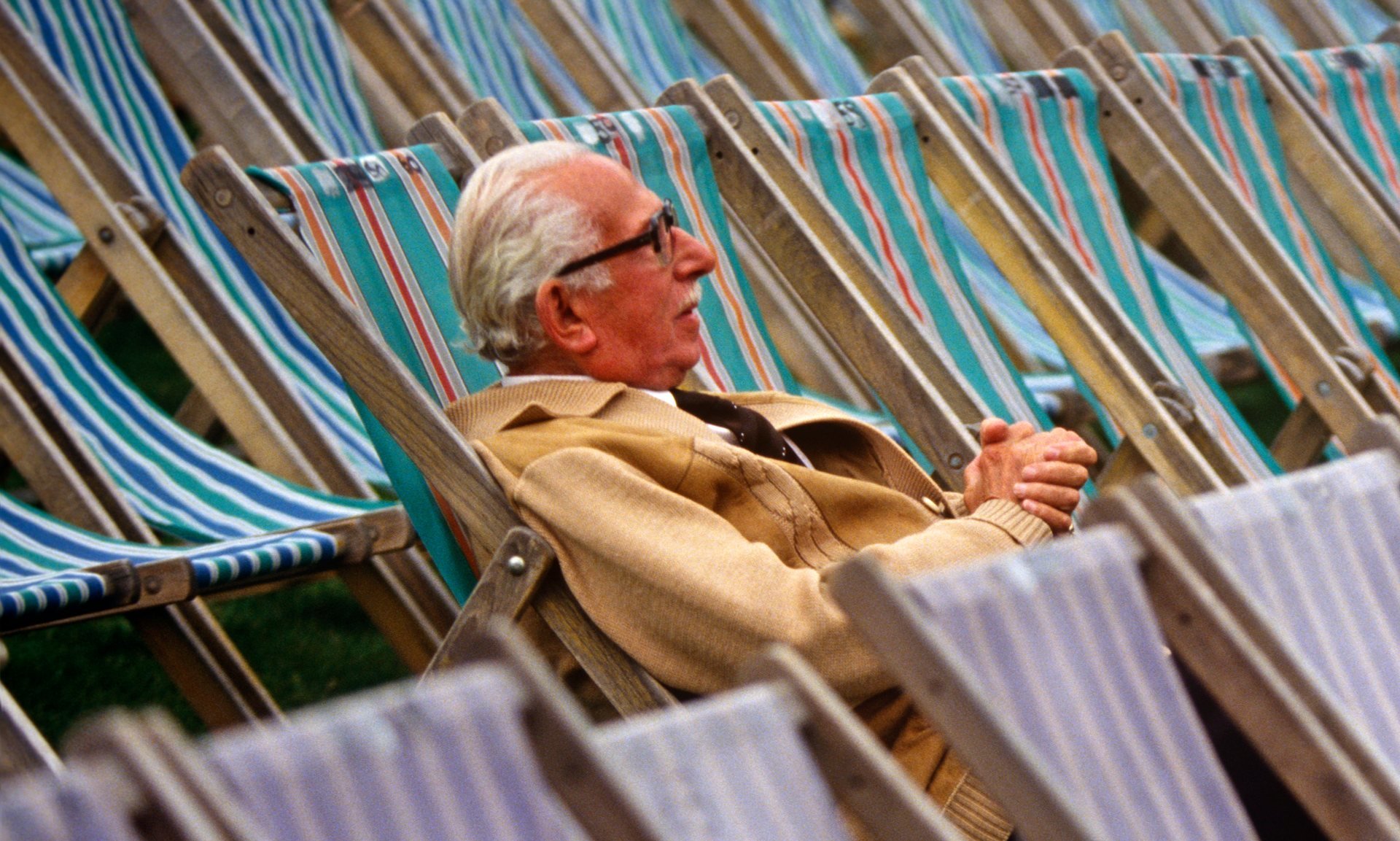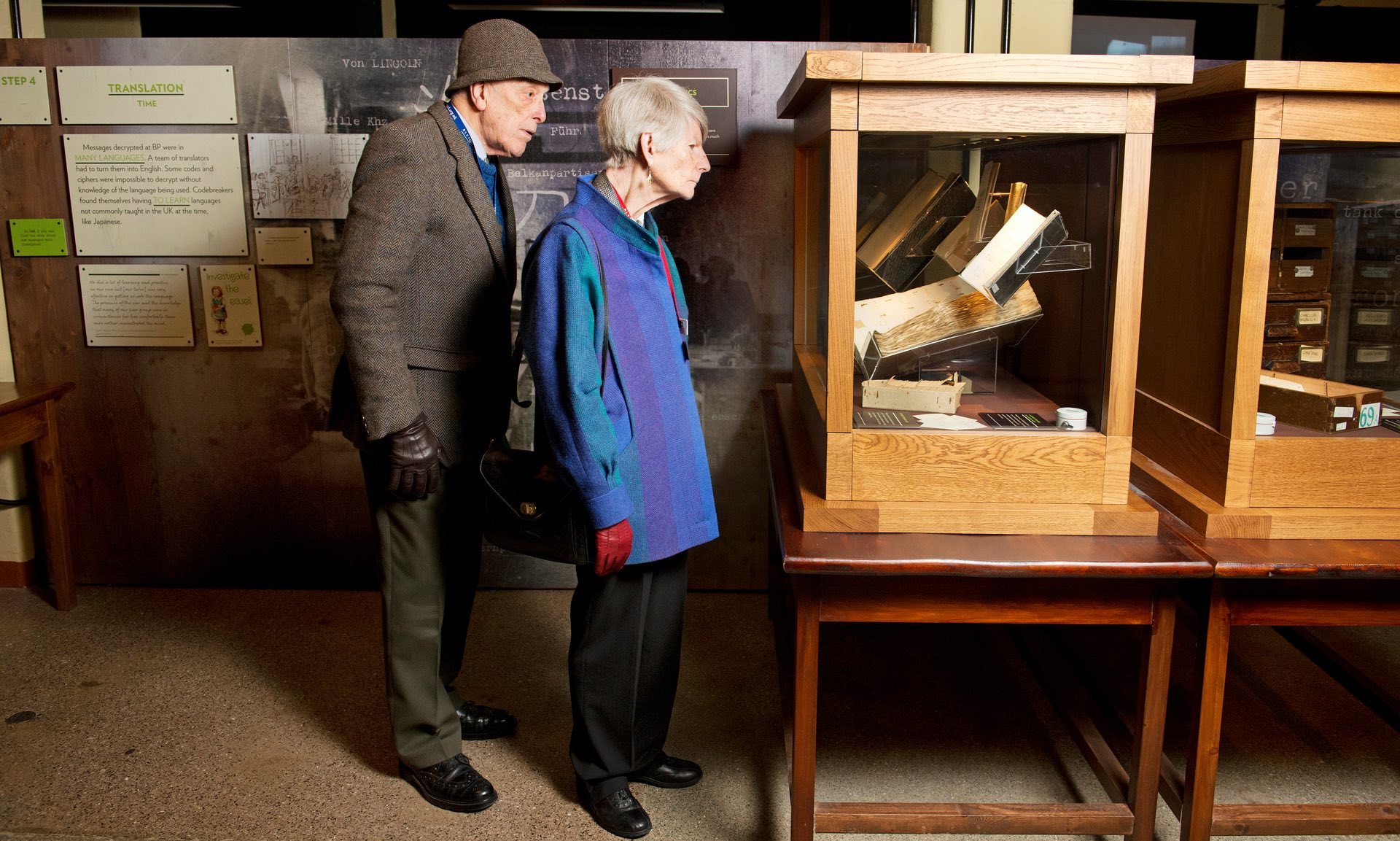A world without pensions
The average age of people is increasing, and the state can no longer cope with the costs. Two months talking with people from Britain about retirement, we realized that old age is becoming an increasingly frightening prospect.

We are entering an era without pensions. The journey to this dreadful reality is not a long one: the first generation, to which it will fall, is now at the age of 40-50 years old. They grew up expecting the same retirement pension as their parents enjoyed - to finish work by the age of 65, and to receive a pension sufficient to spend the rest of their health on fulfilling their old dreams. But for them, most likely, it is too late to change something in order to get an opportunity to retire.
In 2010, British women retired at 60 , and men at 65. By October 2020, people of both sexes will have to wait to 66. By 2028, this age will increase to 67. And this growth will continue. By the 2060s, people will work at 70 years old, but according to the study, we all have to work after 80 to get the same pension that went to our parents.
This is what a world without pensions looks like. Workers will not be able to lay down their instruments, even when they are already struggling to hold them with their hands, knots from age-related arthritis. Raising the retirement age will create a new level of social inequality. People living in places where life expectancy (life expectancy) is less than the retirement age (in the south-east of England it is the highest, in Scotland - the lowest) will die even before they can claim their pension, for which they worked all their life. In other words, rich people will reap the rewards of state security.
')
Most likely, pensions will remain in close to current form in the short and medium term. But in the long run, this provision will completely disappear.
For people of retirement age who cannot afford to retire and cannot continue working - for health reasons, because of the need to care for their parents, due to the fact that employers prefer to hire younger people - the progress made by Britain in recent years a couple of decades in the fight against poverty among the elderly, rolled back. This group of people will face widespread poverty, which in Britain has not been seen for 30-40 years.
Many people aged 20 and over will not be able to make savings in their youth and maturity due to the increasing share of irregular employment, student debts and rising real estate prices. When they get old, members of this new generation of poor pensioners will be in a much worse position than the average poor pensioner today.
The reason for this is several factors: the increase in life expectancy, disgusting retirement planning by government officials, the end of the “final wage” scheme (according to which people received 2/3 of their last salary as a pension) and our inability to save.
I spent two months investigating what a pension looks like today - and what it can turn into with the next wave of retirees, for their children and grandchildren. It turns out that the state provision of pensions flies into the pipe. Under the weight of increased life expectancy, retirement - one of the most valuable institutions of the state - is threatened with collapse.
Many of those awaiting retirement are worried about the new situation. A 62-year-old woman who had problems with mortgage payments for the first time in her life told me: “Now I’m working hard more than when I was 30. Then I lived in a tight budget constraint, but I was young and could tolerate it. I do not want to whine, but I never thought that I would be so much afraid of the future. I am not a materialist and have not dreamed of a posh life. But it is very scary, not to be sure that in a few months you will still have a home. ”
Old age is not only afraid of the adult generation. Adam Palfri is now 30, he has three children and a disabled wife who cannot work. “I confess, I am terribly afraid of retirement,” he told me. - I have no savings. There is not even talk about them. I earn enough to keep afloat with housing subsidies, disability and tax rebates. I work for this as much as I can. I definitely can not continue in this mode until the age of 70 and beyond, just so that I and my spouse could lead a simple existence. And my three children ... God knows. I'm afraid to think about it. ”
Population aging is not news. It is surprising that we failed to prepare for these inevitable changes. Life in Britain is growing at an alarming rate of five hours a day. Due to a period of relative calm, low infant mortality and advances in medicine, over the past 20 years, the life expectancy of infants has increased by 5 years. The life expectancy of a baby born at the end of my 8-week study of the retirement plan is 12 days longer than the one born at the beginning.

In 2014, the average age in Britain for the first time exceeded 40 years - from 33.9 years in 1974. In just 10 years, half of the people in the country will be over 50 years old. This will transform Britain, and it will not be a temporary phenomenon. The trend will continue with the increase in life expectancy. This year there was a turning point in the demographics of the country. The generation of baby boomers between the ages of 53 and 71 began to retire, and for the first time since the 1980s, people who were too old or too young to work became more than working.
The number of people in Britain over 85 years old should double in the next 25 years. By 2040, the age of almost every seventh Briton will exceed 75 years. Half of the children already born will live to the age of 103 years. 10 million living in the country today (and 130 million Europeans) will live to 100 years.
There are serious difficulties. Tax imbalances in an aging society, in which tax revenues do not greatly reach the amount of services consumed, will reach up to £ 15 billion by 2060. To cover this difference, you will need to raise taxes by 4%.
It is easy to see why the government regards raising the retirement age as a way of covering the cost of an aging population. Employment of people whose age is close to 70, will be able to maintain the ratio of the number of working people to non-working for many years. And if the percentage of working old people coincided with the percentage of people working between the ages of 30 and 40, additional tax revenues could be £ 88.4 billion . According to the “golden age” index from PriceWaterhouseCoopers , if in Britain the percentage of working people aged over 55 years would be as high as in Sweden from 2003 to 2013, Britain's GDP would be 5.8% higher.
But this approach has its own problems. A small, privileged share of people will be able to work after 70 years. It will be a highly educated elite who have not spent their lives at work, impairing their health. If you raise the retirement age further, then people with health problems, relatives who need to be cared for, or the unemployed will have to be extremely difficult.
Since April 6, 2016, the new state pension will be paid to men born on or before April 6, 1951, and women born on or before April 6, 1953. If a person has been paying national insurance for 35 years, the pension will be £ 155.65 per week .
Frank Field, Labor Party MP and Chairman of the Committee on Work and Pensions, told me that the new payments of £ 8,000 a year are enough to guarantee all retirees a decent standard of living: “an adequate minimum,” he said. Large amounts will require private investment.
“After reaching the minimum, it is no longer the government’s job to bribe people to put off more,” he says. “The purpose of state pensions has never been to provide smart pension payments.”
Can we call this pension "comfortable minimum" - it depends on the point of view. Dr. Ros Altman, who has been working in the government since April 2015 on the pension policy, is an advocate for old-age pensions and the head of the Institute for Pension Policy. When I gave her a comment to Field, she was speechless. Then she could only say "wow." "Did he really say that?" Would he like to live on just £ 8,000 a year? ”
Tom MacPhail, head of the retirement policy department at consulting firm Hargreaves Lansdown, is confident that the new state pension is not at a level sufficient for a decent life in the elderly people without additional income. “How much will a new pension be sufficient? Easy answer: no, ”he says.
Field assumes that people will have enough private savings that they can add to the state pension. But in fact, many people have no savings — almost a third of households will have problems if they need to pay an unexpected £ 500 bill — no accounts in private pension funds to tighten their retirement to a comfortable level, as most people understand. In fact, savings are a major watershed in retirement, and so on. “Retirement gap” - the difference between the size of the pension and the income necessary for a comfortable life - is shocking.
Three out of 10 Britons aged 55-64 do not have any retirement savings. Almost half of people aged 30–40 do not save money. This is partly due to our underestimation of the amounts needed for accumulation. According to a study by Saga, 4 out of 10 people over 40 have no idea about the value and lifestyle of retired people. When they found out how much money should be deferred for retirement payments, 80% of them admitted that they had underestimated these amounts.
Pension is an ancient concept. It led to one of the most terrible military catastrophes that the Roman Empire faced. In the year 14 AD the emperor increased the retirement age and reduced the pensions of legionnaires, which led to the uprising in Pannonia and Germany. The instigators were then fished out and executed, but this institution remains so valuable that any threat to its existence can lead to rebellion. “We have stolen pensions. You can pay as much as you want. We will never get the money back. It is time for the gray-haired revolution, ”one of the readers wrote to me.

In 1881, German Chancellor Otto von Bismarck delivered a radical speech in the Reichstag, calling for the introduction of state financial support for people over 70 years old who "are not able to work because of age and disability."
This scheme was not such an ideal of socialism: Bismarck advocated for a disability pension, and not for a pension in the current sense. In addition, the retirement age in his speech corresponded to the average life expectancy at that time. Nevertheless, he foresaw reforms that were too radical for his time: he offered to keep a pension for people of any age, if a person could be considered unfit for work. The earlier a person retired, the less he would receive.
His ideas periodically pop up in different ways. The New Economics Foundation believes that it is necessary to shorten the work week as part of a “slow retirement” period, when workers start working an hour less every week, starting at 25 years old. The idea is that old workers will free up working time for young people, which will ensure a smooth transfer of accumulated experience. A universal basic income, a fixed amount of money received by a person regardless of whether he works or not, can lead to the same effect, allowing people to switch to a part-time working week with age.
Widespread poverty among people over the age of 65 led to the creation of the National Insurance Act of 1946, which introduced the first funded pension with a single rate in Britain for women after 60 years and men after 65. At first, pensions were small and they did not have enough to live . But by the end of the 1970s, the amount of state pension had grown, and an increasing number of people — mostly men — were gaining the benefits of a working pension. By 1967, more than 8 million workers who worked in private companies were provided with a “last salary” pension, and with them 4 million state employees. In 1978, the Labor government introduced an income-related system for people who were unavailable for commercial companies.
When pensions reached values that allowed people to leave work without fear of poverty, older men (less often women) began to experience a “third age” between the end of work and the arrival of old age. In 1970, among men aged 60-64, 81% were employed. By 1985, that number had dropped to 49.7%.
Access to comfortable old age is a powerful political idea. John McNicol, a professor at the London School of Economics and author of the book Neoliberalization of Old Age [ Neoliberalising Old Age ], believes that in a situation where young workers needed jobs after the end of World War II, a “socially elegant mythology” was created, according to which the pension was declared time in which old workers can relax.
He believes that in the 1990s, this tale was cynically changed, and the image of pensioners was specifically changed: from poor, weak and dependent, they turned into secure, hedonistic, politically influenced and selfish. The notion of a “prosperous retiree was created in the face of evidence that demonstrates the opposite,” he says, “in order to undermine the right to a pension. Attempts at violent work practices, forcing old people to work could be thought of as providing new "opportunities", eliminating working barriers, which created a suitable illusion and led to social mobility. "
Changing attitudes toward retirees helped the government push through changes in the retirement age. In 1995, the Conservative government led by John Major announced an increase in the retirement age from 60 to 65 for women, planned for the period from April 2010 to April 2020. Most people agreed that the equation for the retirement age of the sexes was fair. But people objected to the fact that the government waited for 2009 - when it was only a year before the reform began - to start reporting this to the people who came under the reform, leaving thousands of women without the opportunity to change their financial or working conditions to adapt to the increasing pension gap.
In 2011, when women's retirement age reached 63, the coalition government accelerated the inevitable. Now the retirement age for women rises to 65 in November 2018, and then it will grow with the male: up to 66 by 2020, and up to 67 by 2028.
After retiring after working in the Ministry of Work and Pensions in 2016, Ros Altman considered that she was “not convinced that the government had adequately dealt with women whose retirement age increased after the warning made so late.”
Having survived cancer at 52, Jackie Harrison, who is now 62, appreciated her savings and decided that she could afford to retire earlier. “I gained 36 years of pension contributions,” she says. “I called the Department of Work and Pensions every year to make sure that I work enough to get a pension of 60 years.”
Then she was informed that her retirement age was increasing from 60 to 63 years and six months. “I did not get subsidies because of the pension of my spouse, but I could still manage and live to the new retirement age,” she says. But when she turned 58, the goal was pushed back again - now to 66 years. “I have not worked for so long that I no longer hope to settle down again,” she says. “But I wasn’t given enough time to deal with finances.”
Harrison made the unpleasant decision to sell her family nest and move to another city, cheaper. Her decision greatly influenced her family and state. She had to leave an adult daughter, grandson and parents who are already over 80.
“I did not plan such a pension,” Harrison told me. - I once had a lot of savings, but now I'm constantly worried about finances. It seems dishonest, because I worked all my life and planned retirement. I do not know how I will cope for another four years. ” Women born in the 1950s are already living in an era without pensions.
In 2006, employers received the right to forcibly retire workers over 65 years of age. Public organizations conducted several campaigns, claiming that the new rules violated the laws of the European Union and gave employers opportunities for age discrimination. In October 2011, this law was abolished.
Since then, the labor force of Britain turns gray before our eyes. Over the past 15 years, the number of people between the ages of 50 and 64 has increased by 60%, to 8 million (this is much more than the increase in the number of people over the age of 50). The proportions of working people aged 70 to 74 years over the past 10 years have almost doubled. This trend will continue. By 2020, a third of workers will be over 50.

A proportional increase in the number of employees may be large, but this growth comes from small absolute values. Empirically, it is not so positive: nearly a third of people in Britain between the ages of 50 and 64 are unemployed.More people lose their jobs than they find: almost 40% of people living on benefits are older than 50, suggesting that older people cannot find a new and normally paid job.
By 2020, approximately 12.5 million jobs will be vacated due to the care of older people. And only 7 million young people can fill these places. If you do not fill this gap with emigrants, employers will have to give up their prejudices and adapt workplaces, and social workers will have to replace aging people who cannot take care of their grandchildren and aging spouses because they cannot leave work.
But if you force aging people to work when it is hard for them, then it can do more harm than good. Professor Deborah Price, DirectorThe Manchester Institute for Collaborative Aging , told me: “There is evidence that being able to work at an age above retirement age can exacerbate inequality, since those who can work at that age are usually highly educated men in high-paying jobs.”
One of the options is to return to the Bismarck plan, according to which people of any age who would prefer to receive a smaller amount who retire earlier than retirement age can apply for state retirement, perhaps due to poor health or other problems.
But last week, this option was rejected by John Cridland, the former head of the Confederation of British Industry, a lobbyist group appointed by the government in March 2016 to reduce retirement expenses, estimated at £ 100 billion annually, revising the retirement age.
Cridland recommended increasing the retirement age from 67 to 68 years by 2039, seven years earlier than planned. This will postpone the retirement age for another year for those who are now a little over 40. Cridland rejected appeals to allow early access to retirement for people with health problems, but left loopholes to help such people a year before the retirement age.
Despite all the problems with money that I was particularly surprised when dealing with people of retirement age - the pleasure they receive from life.
One grandmother told me: “Last week I went through a crowded pub to take the prize in the lottery. But it turned out that my dress was tucked into pantaloons! A few years ago, I would burn with shame. And now not.I told them that they were lucky that it was cold, and I put on pantaloons! ”
Monica Hartwell, 69, participates in the Regal folk theater in Minehead, and also her community runs a cinema club and a museum. “In old age, it's good that you become more self-confident,” she told me. - You get rid of worrying about what others will think of you: about the size of your ass, or whether people appreciate you correctly. This is not arrogance, but when you are old, you already know who you are, and all these roles you played at an earlier age no longer matter. ”

These statistics are consistent with this: the happiest adult group is people from 65 to 79 years old . Recently, one report stated that women over 80 havemore good sex than women 30 years younger. Another study found that 75% of people over 50 are much less worried about what others think of them, and 61% enjoy life more than when they were young.
What is the secret of a successful retirement? Private companies provide assistance courses for those in their pre-retirement age to help them transfer changes in income, in free time and relationships. I spoke with the leaders of these courses and with those who attend them. All agree that life in old age has five columns, one of which is the money cushion, a certain basic level of financial security, without which it is hard to live. After it, you can build a second column - a social network, replacing the community from work. The third is the goal in life and the setting of tasks. Fourth - the continuation of personal development - the passion for research, asking questions and learning makes a person a man; I was told that this process cannot be stopped. Fifth - fun.
Recently I tried to explain the “last salary” pension system to a 20-year-old man. He looked at me as if I told him that I had seen a unicorn. But when today's 20-year-olds explain the traditional system of pensions to their children, they may face the same level of misunderstanding.
For their children, life will be more like a joke sent to me by one of the readers during a survey conducted by me on the topic of pensions: "I will have to work until 6 pm on the day of my funeral, just so I can afford to pay my coffin."
Studying the reality of a new era without pensions, I saw two major flaws that impede constructive debate. The first is prejudice, due to the fact that an aging population will prove to be a huge burden for society.
This is refuted by many studies. In a charity organization, WRVS conducted most of the work on the numerical evaluation of the economic role of older generations. If you add up tax payments, the possibility of spending, care and volunteering of people over 65 years of age, it turns out that they add £ 40 billion more to the economy than they take from it in the form of pensions and medical care.
Studies show that this economic benefit will increase in the near future, with an increase in the retirement rate of baby boomers. By 2030, the total contribution to the economy of people of retirement age will be approximately £ 75 billion.
The contribution of pensioners to society is not only economic. As a result of a survey from ICM, it was found that 65% of retirees say they regularly help their elderly neighbors; This is the most likely age category of all who provide such assistance.
The second drawback is the generation gap, which may raise the issue of retirement. The financial problems of the young blame the baby boomers. In fact, the size of pensions in Britain is much less than in most developed countries. And many pensioners have to live on income taxes, despite the fact that pensioners also pay taxes.
Nearly 2 million people aged 55–64 live without private pension programs, and despite the widespread belief that older people are free from mortgages, less than 48% of people of this age have successfully paid for their homes, and almost a quarter of them rent housing. . Some people actually earned a lot on real estate prices, but in 70-80 mortgage interest rates often exceeded 10%, which is why one out of ten people over 65 years old still pays for a mortgage.
Recently I’ve skipped information that the retiree’s average household has an income of £ 20 a week more.than the average household of working people, but in fact many pensioners simply have to work to maintain their income. Still, people just starting to work today, the life of today's retirees seems incredibly privileged.
Rachel Ingram sums it all up. She is 19 years old, she works full time and is studying for an Open University diploma. She spends 10% of her income on retirement. “At my age, I wouldn't have to worry about pensions,” she says. - I save money that can go on deposit to pay for my first house - now I rent an apartment in Liverpool - or I can spend it on socialization. But I do not believe the government and state pensions. When I grow old, there will be no one to look after me. ”
Source: https://habr.com/ru/post/402943/
All Articles